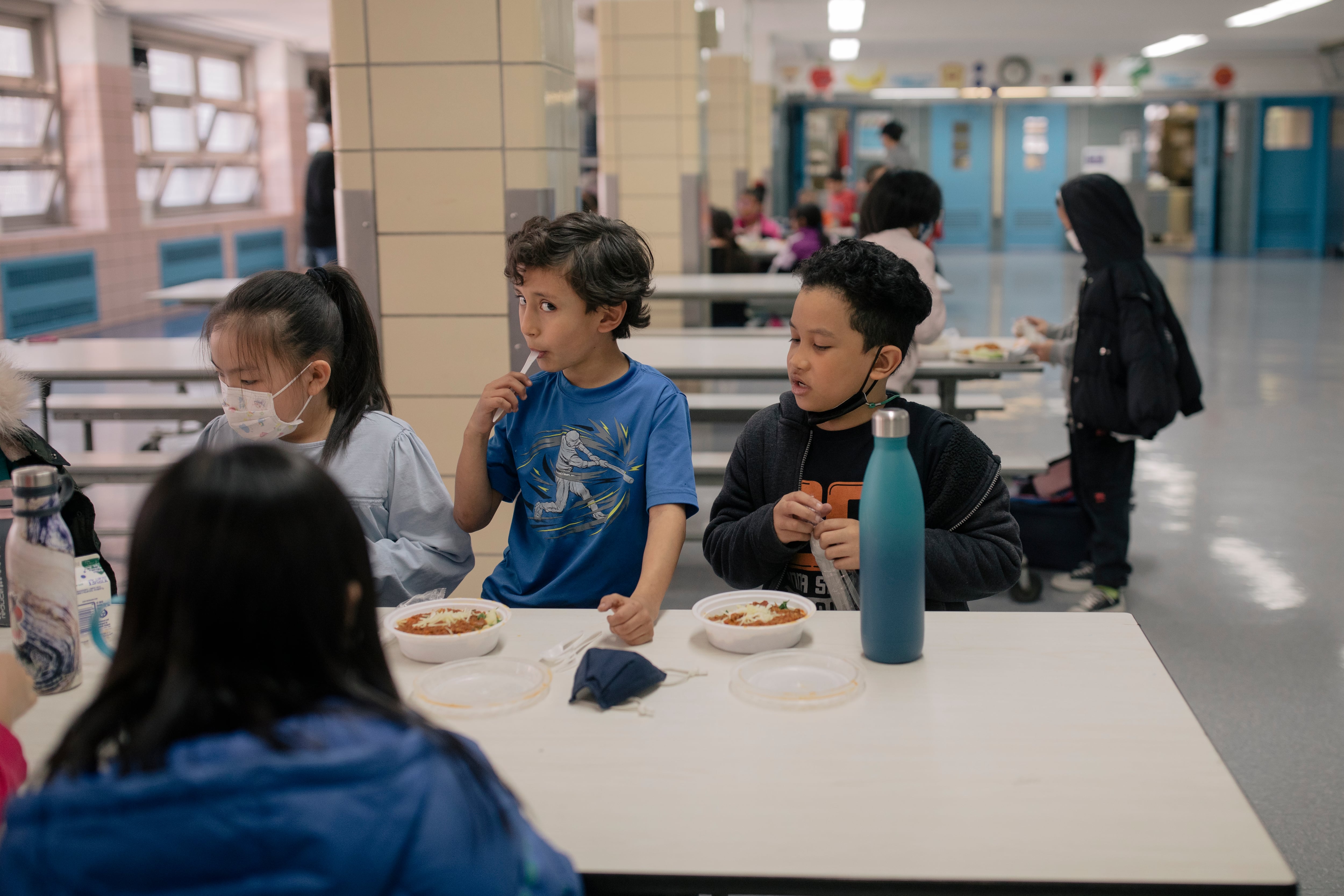Chalkbeat is a nonprofit news organization covering public education in communities across America. Sign up for Chalkbeat New York’s free daily newsletter to keep up with NYC’s public schools.
New York City public school families, regardless of income, will soon receive a new allotment of food benefits of at least $391 per child, according state officials.
Known as the Coronavirus Pandemic Electronic Benefit Transfer, or P-EBT, the federal program aims to help families whose children typically receive free meals at school — and since New York City public schools have universal meals, all families are eligible.
The latest disbursement of funds — which could total up to $1,671 per child based on COVID-related absences or remote-learning days — is based on the 2021-22 school year and the summer of 2022. The rollout began in April, with most payments posting this month, according to the state. Officials expect distribution to continue through September.
Since May 2020, the state has doled out $4.3 billion in P-EBT benefits, including over $1 billion for the 2019-20 school year, and more than $3.2 billion for the 2020-21 school year and summer 2021, according to state officials.
Advocates have praised the program for providing families with much-needed support and boosting the local economy.
“We know that food insecurity prior to the pandemic was a major problem in New York City,” said Liz Accles, executive director of Community Food Advocates. “It’s only gotten exponentially worse since the pandemic, so any ongoing support is really essential.”
Who is eligible?
All families with children who attended K-12 in New York City public schools last school year are eligible for food benefits. Those in charter, private, and other schools, or pre-K, who received free meals through the federal school lunch program are also eligible.
Children under 6 years-old as of September 2021 who received federal SNAP food assistance in the months between then and August are also eligible for food benefits.
Families are eligible regardless of their immigration status.
How are benefits calculated?
All K-12 children who receive free lunch at school will receive a $391 summer food benefit. So will children under 6 years old as of September 2021 who received SNAP money in June, July, or August 2022.
For each month of the 2021-22 school year, families (including those with pre-K children) will also receive $21 per month that their child was absent or remote from one to five days of school. That increases to $78 per month that their child missed from six to 15 days, and $128 per month that they missed 16 days or more.
Children under 6 years old as of September 2021 who received SNAP food assistance will also get up to $310 in food benefits, with $31 distributed for each month they received SNAP money between then and June.
How are benefits distributed?
Most families will not have to apply to receive their benefits, according to the state.
The state will automatically distribute the money to students who were absent or remote for five or more consecutive days of school.
If parents want to indicate that an absence not automatically covered by the state was also COVID-19 related, they will have to submit a P-EBT Food Benefit application to the state. The online application will be available from May 15 until Aug. 15.
How do you access the food benefits?
Families who previously received food benefits during the 2019-20 or 2020-21 school years will receive the latest benefits on the same P-EBT card, while newly eligible children will be mailed a card.
Those who have lost their P-EBT card can get a replacement by calling 1-888-328-6399.
Families that receive SNAP, state Temporary Assistance, or Medicaid benefits will get their disbursements directly added to those accounts.
The money can only be spent on food items.
Why do the benefits matter?
Nearly 30% of New York parents worried their household would not have enough food, according to a poll of state residents conducted last month by No Kid Hungry, a national campaign run by the nonprofit Share Our Strength. Two-thirds, meanwhile, reported experiencing stress, anxiety, and depression in the past year due to food insecurity.
“We know that families with kids in public school are having to make very hard trade-offs right now, deciding between buying food or paying rent, purchasing clothes, or just keeping the lights on,” said Rachel Sabella, director of No Kid Hungry NY. “Our recent data indicates that the hunger crisis is worsening in New York, so supporting families with P-EBT funds they can use to put food on the table will be a lifeline for many New Yorkers.”
Accles noted the benefits are particularly important now that some pandemic relief programs have expired.
“When schools are functioning in full force, a child has access to two solid meals a day,” Accles said. “For a family struggling to make ends meet, that’s a significant amount of resources that a family could save.”
She urged families to treat the benefits as they would stimulus funding, noting that spending them supports families and bolsters the local economy.
“Spend it, use it, buy food that you need,” she said.
Julian Shen-Berro is a reporter covering New York City. Contact him at jshen-berro@chalkbeat.org.






